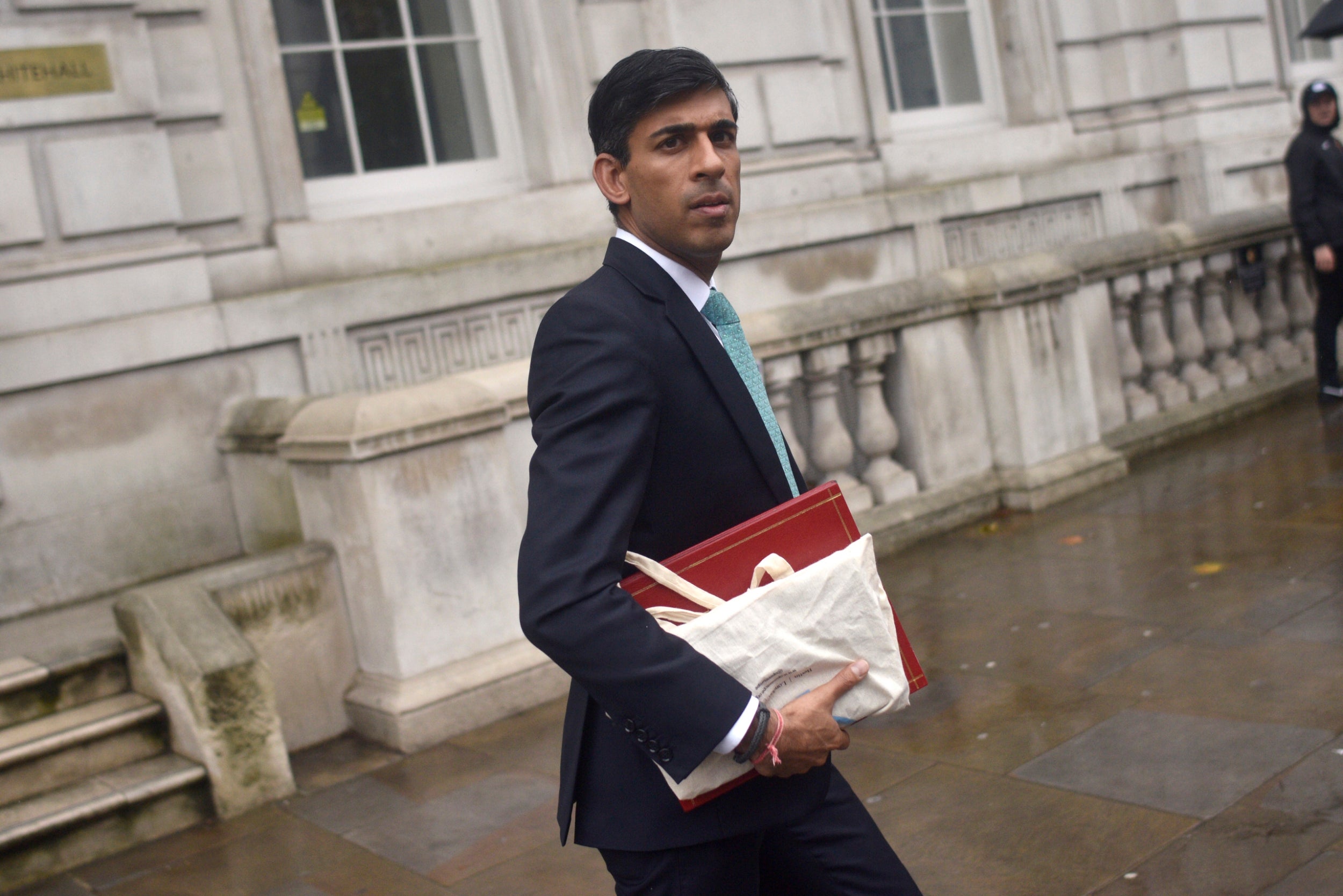Conservative’s admission that no-deal Brexit remains on the table exposes Johnson’s sloganeering for what it is
Even if the PM gets his deal through in January, Britain faces another no-deal knife-edge at the end of next year, says Andrew Woodcock

Rishi Sunak’s admission that no-deal preparations will continue even if the Conservatives win a majority in the Commons has shone a spotlight on what is really at stake in a general election where many of the protagonists appear to be shadow boxing.
The chief secretary to the Treasury’s words have exposed the flimsiness of Boris Johnson’s central promise that handing him victory will in some way “get Brexit done” and allow the country to move on.
In reality, the withdrawal agreement which Mr Johnson hopes to ratify soon after the election and put into effect on 31 January is merely the first stage in what are likely to be lengthy negotiations over the UK’s future relationship with the remaining EU.
If the PM is successful in getting the deal through by the end of January, it will trigger the start of a “transition period” lasting until 31 December 2020 intended to allow for negotiations on future relations in areas like trade and security.
During this period, the UK will continue to pay contributions of around £1bn a month to EU budgets, but will have no say over decisions made in Brussels.
Although Mr Johnson breezily suggests that a “great” free-trade agreement will be in place by the end of the year, few trade experts believe the complex and painstaking work can be completed in anything like that short a period. Similar treaties have taken five or more years to conclude, and the EU’s rules mean that the final document must be approved not only by all 27 national parliaments, but also by regional assemblies in some countries – with each holding a veto which enables them to demand last-minute changes to favour local interests.
The withdrawal agreement recognises the improbability of concluding a free-trade agreement in just 11 months, and includes a provision to extend the transition period for another two years to the end of 2022. In theory any extension would have to be agreed by June – by which time trade talks would scarcely have got under way. In reality, it would probably be put off until the last minute.
But Mr Johnson has firmly committed himself not to request an extension. This was one of the pledges which helped secure Nigel Farage’s agreement to stand down Brexit Party candidates in 317 Tory seats, potentially winning Mr Johnson the election.
This is where the no-deal preparations come in.
Far from ending the risk of a no-deal crash-out departure, under which trading arrangements with the EU are torn up overnight and the UK switches to unfavourable World Trade Organisation terms – with all the negative consequences including chaos at the ports, expensive tariffs on UK exports and shortages of food and medicines – Mr Johnson’s deal makes this the most likely outcome.
Under his plans, he will reach the end of 2020 with the options of accepting whatever deal the EU wishes to offer him or going for no deal.
In these circumstances, Brussels will have little incentive to make concessions to the UK and every motive to make the final – and permanent – relationship one which heavily favours continental businesses.

Opinion is divided at Westminster over whether the prime minister is actually intent on a no-deal outcome, which would certainly be welcomed by Mr Farage, or will dump his “no extension” pledge as he dumped his “die in a ditch” promise and allow negotiations to stretch out into the next decade.
The irony of it all is that – for all his complaints about parliament’s “dither and delay” over Brexit – Mr Johnson’s plan is the one likely to keep the shadow of the withdrawal process hanging over the UK for the longest.
Jeremy Corbyn’s proposal for a customs union and close single market relationship may not be achievable in the three-month timetable he has set himself, but it can certainly be reached more quickly than the ambitious free-trade agreement sought by the prime minister. And Jo Swinson’s plan to revoke could see the whole business over by Christmas – though the domestic repercussions of thwarting Brexiteer dreams would no doubt linger on for years.
Join our commenting forum
Join thought-provoking conversations, follow other Independent readers and see their replies
Comments